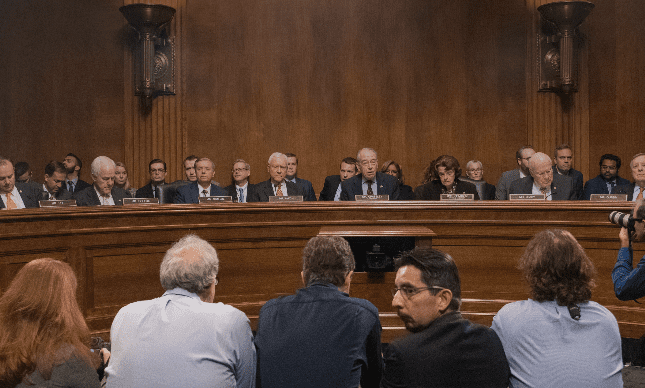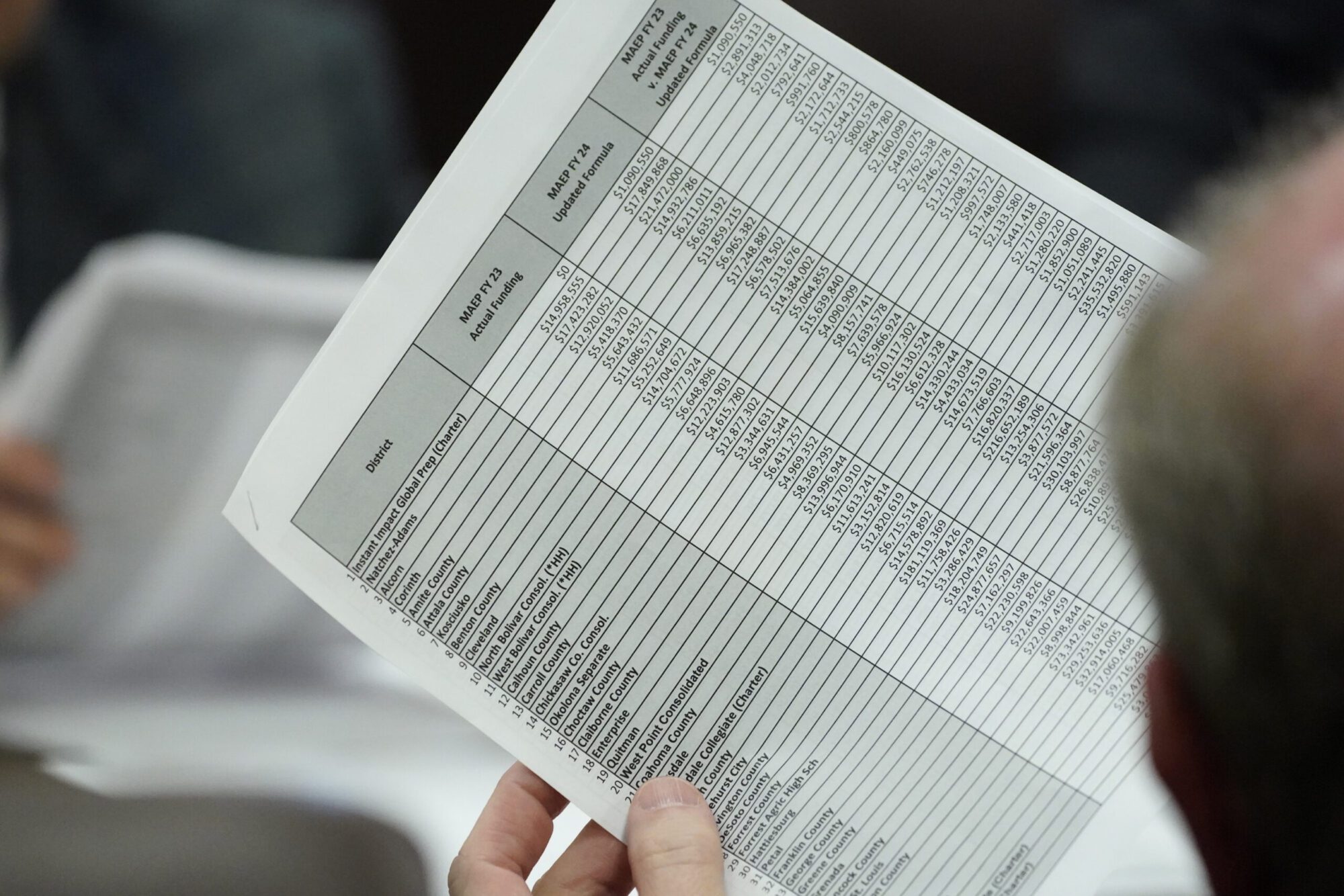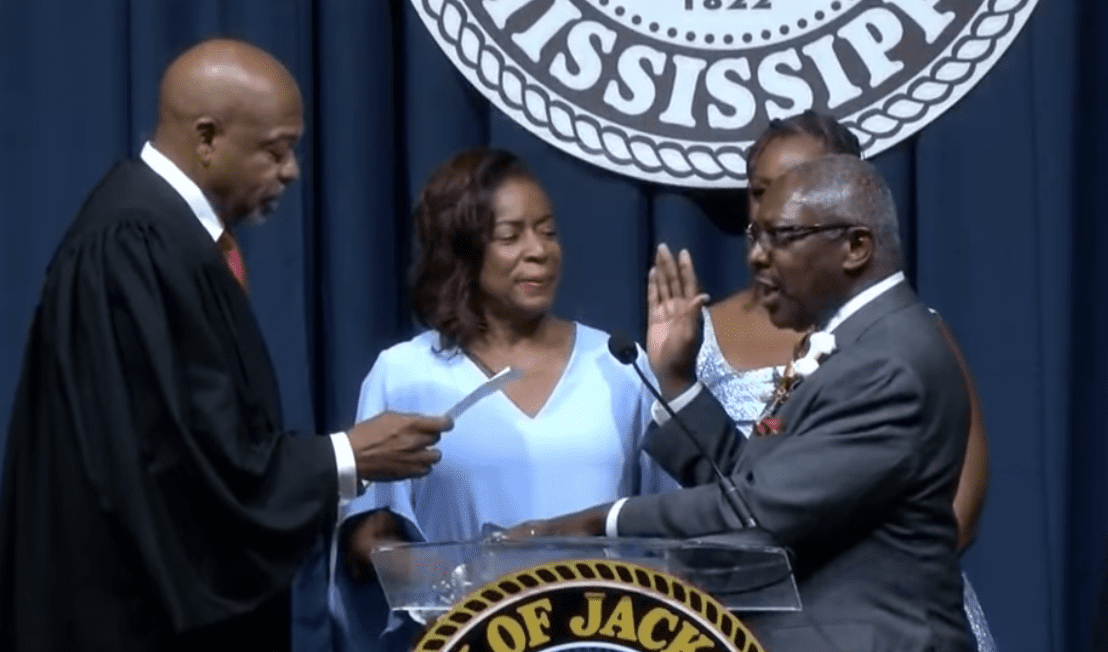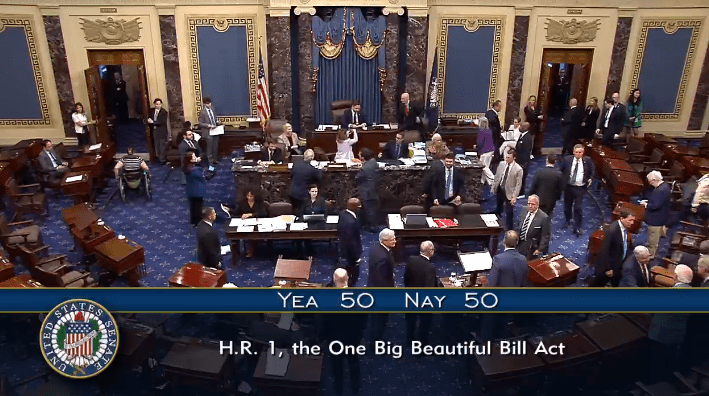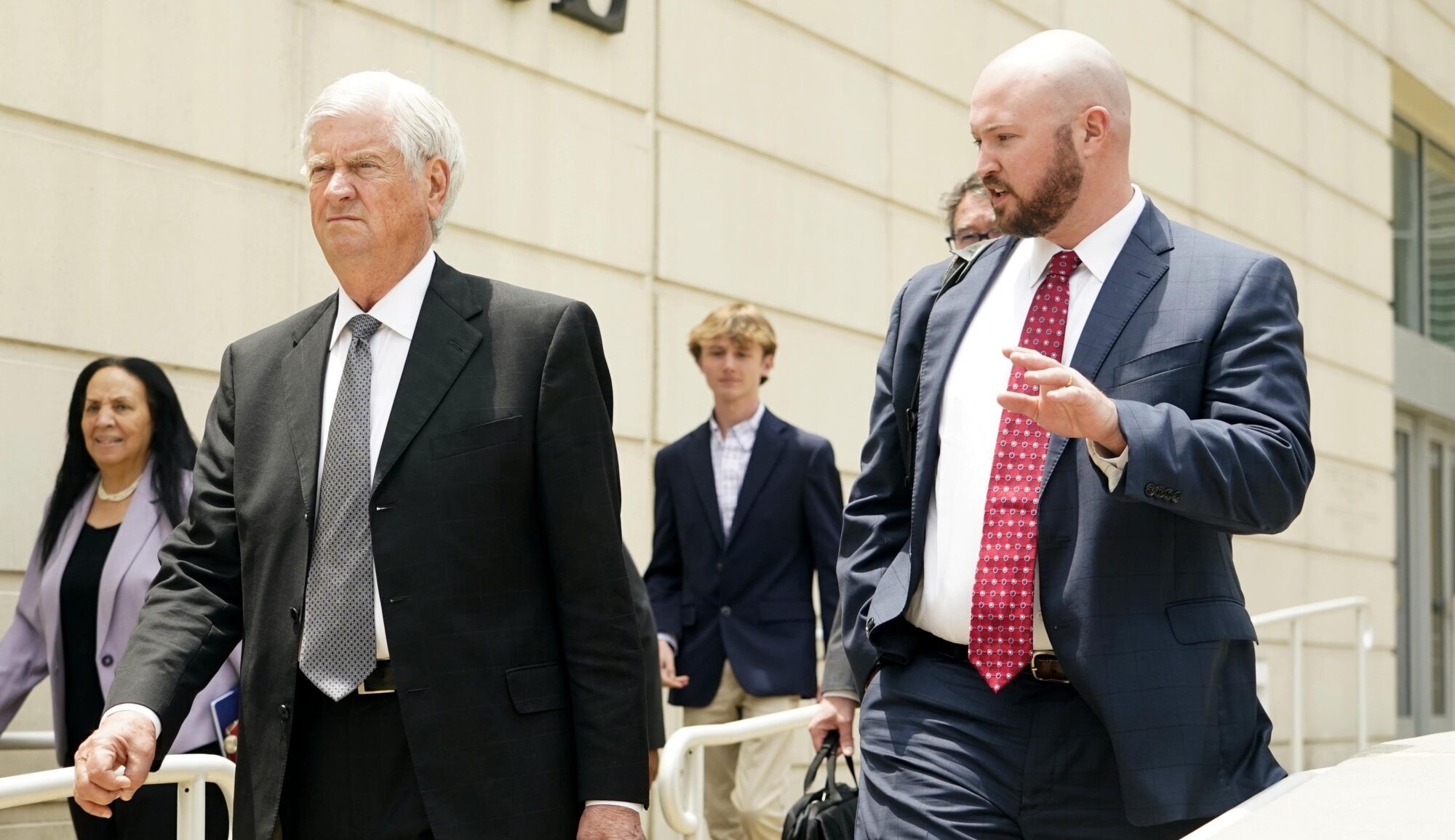
Mississippi Supreme Court Chief Justice Mike Randolph, left, and his attorney Ned Nelson, exit the Thad Cochran United States Courthouse in Jackson, Miss., Monday, May 22, 2023, for a lunch break, during the first day in federal court where a judge is hearing arguments about a Mississippi law that would create a court system with judges who would be appointed rather than elected. (AP Photo/Rogelio V. Solis)
On Wednesday, Judge Wingate dismissed Chief Justice Mike Randolph from a lawsuit filed against the new law. He also ordered Randolph to follow through with HB 1020’s provision to appoint the judges.
U.S. District Court Judge Henry Wingate read an opinion on Wednesday officially dismissing Mississippi Supreme Court Chief Justice Mike Randolph from being listed in a lawsuit that was challenging the legality of House Bill 1020 which was signed into law by Governor Tate Reeves.
The suit, brought by the NAACP on behalf of a few Jackson residents, argued that Randolph could not make judicial appointments as outlined in the bill under current state law. The plaintiffs argued that the appointed, unelected judges infringed on residents’ right to representation.

According to the legislation, Chief Justice Randolph would be responsible for appointing four temporary Circuit Court Judges in Hinds County. The intent, according to legislators, is to help clear the backlog within the county’s court system.
The appointment process has been under a temporary restraining order since May.
There is also a second lawsuit in state court that has made its way to the Mississippi Supreme Court. Originally in that lawsuit, Hinds County Chancery Court Judge Dewayne Thomas allowed Justice Randolph and Circuit Clerk Zack Wallace to be removed from the suit. In May, Thomas also decided he would not block HB 1020 while the federal case was still pending.
State Rep. Trey Lamar was pleased with the news of Judge Wingate’s decision.
“Like many citizens concerned with the safety of their family and property, I appreciate the Court allowing the legislative will of the people to move forward,” said Representative Lamar, the author of the bill.
RELATED: Federal judge: “Jackson has a crime cancer”
Judge Wingate originally issued an opinion in June dismissing Randolph from the lawsuit under judicial immunity. He also expanded his order to directly address the appointments of the proposed Capitol Complex Improvement District (CCID) judge, a provision in the bill. He said that appointment is covered as a judicial act.
HB 1020 does not implement the CCID court until 2024, therefore that appointment is not likely until the court is created.
Plaintiffs in the case are now asking Judge Wingate to allow them to revise their complaint by adding additional defendants that include other state officials, the five unknown court appointees, and the two potential prosecutors that will be appointed to the CCID.
The defense argues that the Judge cannot issue a restraining order for “unknown parties.”
Judge Wingate said he plans to decide on the new requests by the plaintiffs as well as the U.S. Department of Justice request to intervene in the case after his full order about Chief Justice Randolph is issued.
